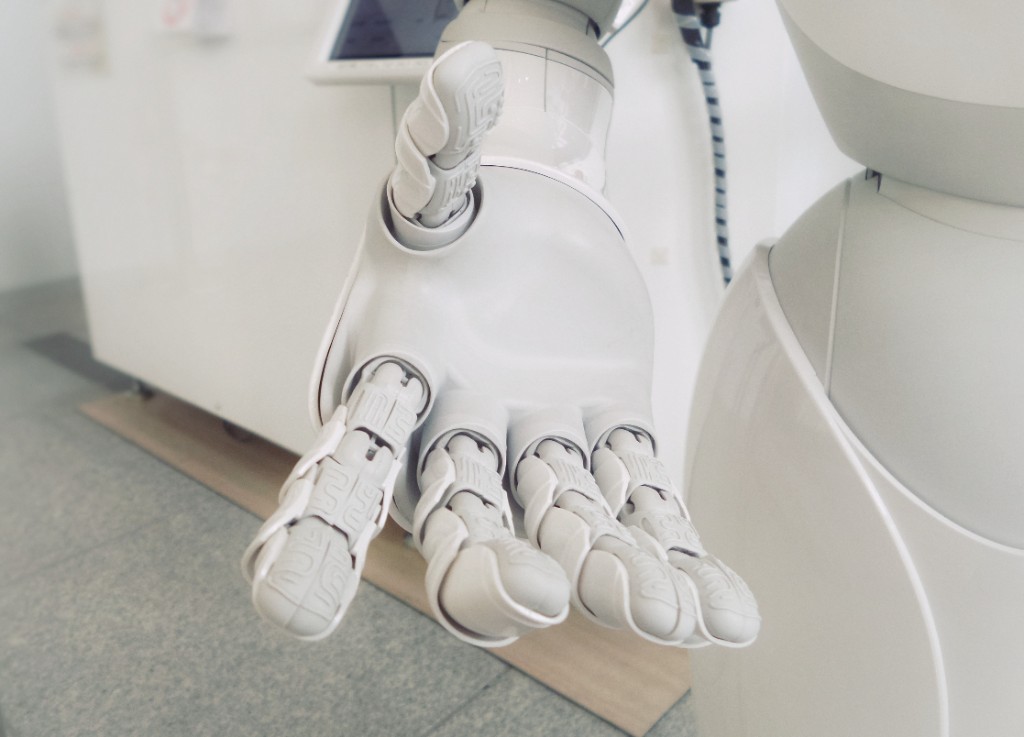In recent years, there has been a significant advancement in the field of Artificial Intelligence (AI) and Augmented Reality (AR). These technologies have become increasingly popular and have the potential to enhance virtual experiences in various fields such as gaming, education, healthcare, and...
Discovering the Wonders of Artificial Intelligence: Unveiling its Boundless Potential and Limitless Applications

In today's rapidly advancing technological landscape, one concept that has captured the imagination of researchers, scientists, and enthusiasts alike is artificial intelligence (AI). AI refers to the development of computer systems that can perform tasks that typically require human intelligence, such as visual perception, speech recognition, decision-making, and learning. With its vast potential and wide-ranging applications, AI has become an integral part of various industries, revolutionizing the way we live and work.
Artificial intelligence has the ability to analyze massive amounts of data and extract valuable insights, making it a powerful tool for businesses across different sectors. From healthcare and finance to manufacturing and transportation, AI is being used to streamline operations, improve efficiency, and enhance decision-making processes. For instance, AI-powered algorithms can analyze patient data to assist in diagnosing diseases, predict stock market trends, optimize production lines, and even enable self-driving cars.
Understanding Artificial Intelligence
Artificial Intelligence (AI) is a branch of computer science that focuses on creating intelligent machines that can perform tasks that typically require human intelligence. It involves the development of algorithms and models that enable machines to learn from and make decisions based on data.
AI can be divided into two categories: narrow AI and general AI. Narrow AI, also known as weak AI, is designed to perform specific tasks and is limited to a narrow domain. This includes applications like voice assistants, image recognition, and recommendation systems. General AI, on the other hand, refers to machines that possess the ability to understand, learn, and apply knowledge across different domains, much like a human being.
Key Concepts in Artificial Intelligence
There are several key concepts in artificial intelligence that are important to understand:
- Machine Learning: This is a subfield of AI that focuses on the development of algorithms and models that allow machines to learn from and make predictions or decisions based on data. Machine learning techniques can be categorized into three types: supervised learning, unsupervised learning, and reinforcement learning.
- Neural Networks: Neural networks are a key component of many AI applications. They are designed to mimic the structure and functionality of the human brain, with interconnected nodes, or “neurons,” that process and transmit information. Neural networks are used for tasks like image and speech recognition, natural language processing, and autonomous driving.
- Natural Language Processing: Natural language processing (NLP) is a field of AI that focuses on the interaction between computers and human language. It involves tasks like speech recognition, language translation, and sentiment analysis. NLP enables machines to understand and process human language, facilitating communication between humans and machines.
- Computer Vision: Computer vision is a branch of AI that deals with the interpretation of visual information. It involves tasks like image recognition, object detection, and facial recognition. Computer vision enables machines to “see” and understand the visual world, opening up possibilities for applications in areas like autonomous vehicles, surveillance systems, and medical imaging.

Applications of Artificial Intelligence
Artificial intelligence has a wide range of applications across various industries. Some of the key areas where AI is being used include:
- Healthcare: AI is being used in healthcare for tasks like disease diagnosis, drug discovery, and personalized medicine. Machine learning algorithms can analyze large amounts of patient data to identify patterns and make predictions, helping doctors make more accurate diagnoses and treatment plans.
- Finance: In the finance industry, AI is used for tasks like fraud detection, algorithmic trading, and credit scoring. Machine learning algorithms can analyze large volumes of financial data to detect anomalies and patterns that may indicate fraudulent activity. AI-powered trading systems can also make high-frequency trades based on market trends and data analysis.
- Transportation: AI is playing a crucial role in the development of autonomous vehicles. Machine learning algorithms are used to analyze sensor data and make decisions in real-time, enabling self-driving cars to navigate roads and make safe driving decisions. AI is also used in traffic management systems to optimize traffic flow and reduce congestion.
- Customer Service: AI-powered chatbots and virtual assistants are being used in customer service to provide instant assistance and support. These AI systems can understand and respond to customer queries, provide personalized recommendations, and handle routine tasks, freeing up human agents to focus on more complex issues.
These are just a few examples of the many applications of artificial intelligence. As AI continues to advance, its potential to transform industries and improve our daily lives is only growing.



